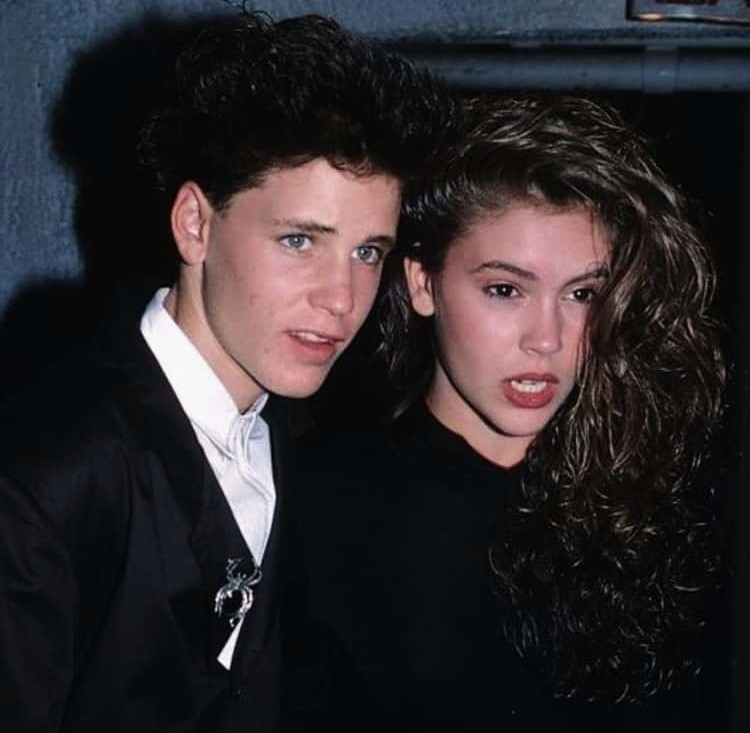When it comes to healthy relationships, we're not just talking about roses and candlelit dinners. It's about creating a bond that stands the test of time, weathering storms, and celebrating victories together. In today's fast-paced world, understanding what makes a relationship thrive is more important than ever. Whether you're in the early stages of dating or celebrating your 20th anniversary, the principles of a healthy relationship remain constant.
Let's face it, folks. Relationships can be messy, complicated, and sometimes downright confusing. But they don't have to be. By focusing on key elements like communication, trust, and mutual respect, you can build a foundation that supports both partners. This guide dives deep into what it takes to create and maintain a healthy relationship, providing practical tips and expert insights along the way.
We've all heard the stories—couples who seem perfect on the surface but crumble under pressure. The truth is, no relationship is perfect. But with the right mindset and tools, you can navigate challenges and grow stronger together. So, whether you're looking to improve your current relationship or preparing for a new one, this article has got your back.
Read also:Internetchicks Your Ultimate Guide To Digital Female Empowerment
Understanding Healthy Relationships
First things first, let's break down what a healthy relationship actually means. It's not just about being in love, although that's a great start. A healthy relationship involves both partners feeling valued, respected, and supported. It's about creating an environment where both individuals can grow and thrive.
Key Components of Healthy Relationships
There are several key components that make up a healthy relationship. These elements work together to create a strong, lasting bond between partners. Here's a quick rundown:
- Communication: Open and honest dialogue is crucial. It's about sharing your thoughts, feelings, and concerns without fear of judgment.
- Trust: Trust is the foundation of any relationship. It's built over time through consistency, reliability, and transparency.
- Respect: Respecting each other's boundaries, opinions, and individuality is essential. It's about valuing the person you're with, flaws and all.
- Support: Being there for each other during both the highs and lows. It's about celebrating successes and offering comfort in times of need.
Why Healthy Relationships Matter
You might be wondering, why should I care about having a healthy relationship? Well, aside from the obvious benefits of happiness and fulfillment, healthy relationships contribute to your overall well-being. Studies have shown that people in supportive relationships tend to live longer, experience less stress, and have better mental health.
Emotional and Mental Health Benefits
Let's dive into the emotional and mental health benefits of healthy relationships. When you have a strong support system, you're less likely to feel isolated or overwhelmed. This sense of connection can reduce symptoms of anxiety and depression. Plus, having someone to share life's ups and downs with can make even the toughest days a little brighter.
Common Myths About Healthy Relationships
Before we move on, let's debunk some common myths about healthy relationships. These misconceptions can lead to unrealistic expectations and unnecessary stress. Here are a few of the most prevalent ones:
- Myth 1: Healthy relationships are effortless. False. Every relationship requires effort and commitment. Even the strongest bonds need nurturing.
- Myth 2: You should always agree with your partner. Wrong. Disagreements are natural and healthy. What matters is how you handle them.
- Myth 3: Passion should never fade. Not true. While passion may ebb and flow, it can be reignited with effort and intention.
Building Blocks of Healthy Relationships
Now that we've covered the basics, let's talk about the building blocks of healthy relationships. These are the essential elements that every successful partnership shares. Think of them as the pillars holding up your relationship house.
Read also:Steveos Wife The Untold Story Behind The Madness
Effective Communication
Communication is hands down the most important aspect of a healthy relationship. It's not just about talking, though. It's about listening, understanding, and responding in a way that shows you care. Here are some tips for improving communication:
- Practice active listening. Give your partner your full attention when they're speaking.
- Use "I" statements instead of "you" statements. This reduces defensiveness and promotes open dialogue.
- Be clear and concise. Avoid vague or passive-aggressive language.
Trust and Transparency
Trust is the glue that holds a relationship together. Without it, even the strongest bond can crumble. Building trust takes time and effort, but it's worth it. Here's how you can foster trust in your relationship:
Being Transparent
Transparency is key to building trust. It means being open and honest about your actions, feelings, and intentions. Here are some ways to practice transparency:
- Share your thoughts and feelings regularly.
- Keep promises and follow through on commitments.
- Avoid secrets and hidden agendas.
Mutual Respect
Respect is another cornerstone of healthy relationships. It's about valuing each other's differences and appreciating what makes your partner unique. Here's how you can show respect in your relationship:
Respecting Boundaries
Boundaries are important in any relationship. They help define what's acceptable and what's not. Here's how to respect each other's boundaries:
- Ask before making assumptions about your partner's limits.
- Honor their requests, even if they differ from your own.
- Communicate openly about what you need from each other.
Supporting Each Other
Support is what keeps a relationship strong during tough times. It's about being there for each other, no matter what. Here's how you can offer support to your partner:
Emotional Support
Emotional support is crucial in any relationship. It's about being a safe space for your partner to express their feelings. Here's how you can provide emotional support:
- Listen without judgment when they need to vent.
- Offer comfort and reassurance during difficult times.
- Celebrate their successes and milestones.
Navigating Challenges
No relationship is without its challenges. The key is how you handle them. By approaching conflicts with a problem-solving mindset, you can turn obstacles into opportunities for growth. Here's how to navigate common relationship challenges:
Conflict Resolution
Conflict is inevitable, but it doesn't have to be destructive. Here's how you can resolve conflicts in a healthy way:
- Stay calm and avoid escalating the situation.
- Focus on the issue, not the person.
- Work together to find a solution that works for both of you.
Maintaining Passion and Intimacy
Passion and intimacy are essential components of a healthy relationship. They keep the spark alive and the connection strong. Here's how you can maintain passion and intimacy:
Keeping Things Exciting
Spicing things up in your relationship doesn't have to be complicated. Here are some ideas to keep the excitement going:
- Try new activities together, like cooking or traveling.
- Plan surprise dates or weekend getaways.
- Communicate openly about your desires and fantasies.
Seeking Help When Needed
Even the strongest relationships can benefit from outside help. If you're struggling to resolve issues on your own, consider seeking professional guidance. Here's how therapy can help:
Relationship Counseling
Counseling can provide a safe space to work through challenges and improve communication. Here's what to expect from relationship counseling:
- A neutral third party to mediate discussions.
- Tools and strategies for better communication.
- Support in addressing deeper issues like trust or intimacy.
Conclusion: Building a Healthy Relationship Takes Effort, But It's Worth It
So there you have it, folks. Healthy relationships are built on a foundation of communication, trust, respect, and support. While it takes effort to maintain a strong bond, the rewards are well worth it. By focusing on these key elements, you can create a relationship that stands the test of time.
Now it's your turn. Are you ready to take your relationship to the next level? Share your thoughts in the comments below or check out our other articles for more relationship tips. Remember, the journey to a healthy relationship starts with you.
Table of Contents


